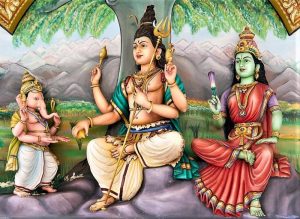Pantheism
In general terms, pantheism can be understood in a positive way as the vision that God is identical to the cosmos, the vision that there is nothing outside of God, although it can also be seen from the negative point of view as the rejection of any point of view that considers God as different from the universe. However, given the complex and controversial nature of the concepts involved, there is insufficient consensus among philosophers to allow the construction of any more detailed definition that is not the subject of serious objections. Pantheism should not be regarded as a codifiable position of a unique nature. Rather, it should be understood as a group of different doctrines.
Etymology
The word pantheism, which is a noun, has a meaning of “belief that God and the universe are identical”. This term was coined by the Irish deism John Toland in the years 670 and 1722, from the Greek “bread” which means “all” plus “theos” which means God. Toland’s word was lent to the French, and from that moment the word “panthéisme” was formed in 1712, the year in which he returned to English as pantheism, and whose meaning was “the doctrine that everything is god”. For Greek, the word meant “common to all gods“.
About pantheism
Pantheism is the vision that God is everything and that everything is God. It is very similar to polytheism, which is the belief in many gods, but goes beyond polytheism to teach that everything is God. A tree is God, a rock is God, an animal is God, the sky is God, the sun is God, you are God, etc. It is the assumption behind many cults and false religions, such as Hinduism and Buddhism to a certain extent, the different cults of unity and unification, and the worshippers of nature. Most people tend to confuse the doctrine of God’s omnipresence as pantheism. God’s omnipresence means that He is present everywhere. There is no single place in the universe where God is not present. This is not the same as pantheism. God is everywhere, but He is not everything. Yes, God is present within a tree and within a person, but that does not make that tree or person God. Pantheism is not a biblical belief at all. There are many biblical arguments against it because it is seen as idolatry. The Bible forbids the worship of idols, angels, heavenly objects, objects in nature, etc. If pantheism were true, it would not be wrong to worship such an object, because that object would, in fact, be God. If it were true, worshiping a rock or an animal would be as valid as worshiping God as an invisible, spiritual being. The Bible’s clear and consistent denunciation of idolatry is a conclusive argument against pantheism.
Origin of pantheism
The concept that God was equal to the world, or that the world originates in God’s substance, arose in Indian philosophy. It is generally asserted that Hindu religious texts were the oldest known literature containing these ideas. In Hindu theology, Brahman is the immutable, infinite, immanent and transcendent reality that is the divine foundation of all things in this universe and is also the total sum of all that ever was, was, or will be. In the western world, pantheistic thought is usually attributed to various philosophers of ancient Greece, such as Thales, Parmenides and Heraclitus, their followers among the Stoics, and Xenophanes of Colophon. These thinkers flourished in the 6th and 5th centuries BC, but although they presented a wide variety of ideas about the divine nature of matter, none proposed an explicitly pantheistic system. Heraclitus’ contribution was to reject the stability of matter and insist that all things were physical manifestations of the logos, a principle that guides the divine fire of the universe.
Representatives
Throughout history, the most important representatives of pantheism have been Plotinus and Proclo. In these two philosophers are the bases of modern pantheism expressed through Jordan Bruno, Espinosa, the Germans and the eclectics. Espinoza was one of the most important modern representatives and for him, the world was nothing more than occasions of God’s action.
Examples
Some examples or religious forms of pantheism are Hinduism and Buddhism in India. Stoicism, German idealism, Muslim and Jewish philosophy.
How to cite this article?
Briceño V., Gabriela. (2019). Pantheism. Recovered on 3 January, 2025, de Euston96: https://www.euston96.com/en/pantheism/










